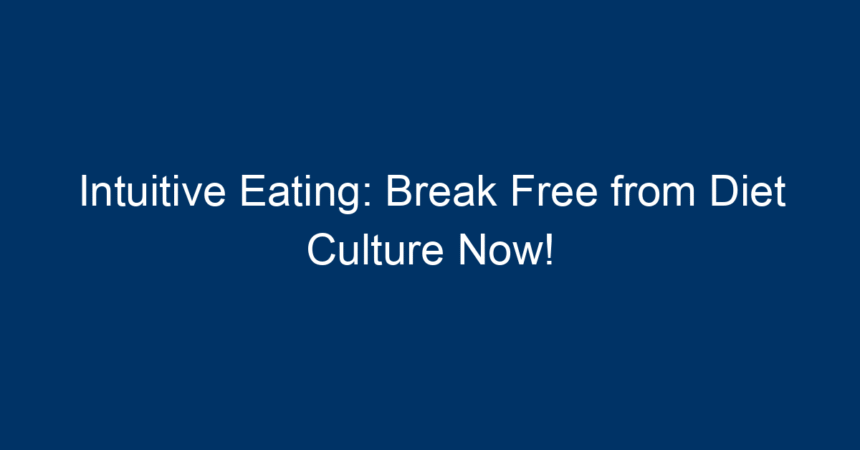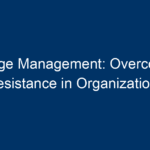In today’s fast-paced world, where diet culture reigns supreme, many individuals find themselves trapped in a cycle of restriction and bingeing. The quest for the "perfect" body often leads to unhealthy habits, negative body image, and an obsessive relationship with food. If you’re tired of the constant battle with your eating patterns and want to discover a kinder, more sustainable approach, it’s time to embrace intuitive eating. This holistic approach not only promotes a healthy relationship with food but also fosters self-acceptance and nourishes your body at its core.
What is Intuitive Eating?
Intuitive eating is a revolutionary philosophy that encourages individuals to listen to their body’s natural cues rather than adhere to external diet rules. Developed by dietitians Evelyn Tribole and Elyse Resch in their groundbreaking book, “Intuitive Eating,” this approach consists of 10 principles aimed at cultivating a positive relationship with food and body. By learning to trust your internal signals, you can break free from the limitations of diet culture and enjoy food without guilt or shame.
The 10 Principles of Intuitive Eating
-
Reject the Diet Mentality
The first step in your journey to intuitive eating is letting go of the mindset that diets and trends hold the key to health. Acknowledge that most diets result in temporary weight loss followed by weight regain. Accept that your worth isn’t related to your weight. -
Honor Your Hunger
Listen to your body’s hunger signals. Rather than waiting for extreme hunger to dictate your meals, pay attention to your body’s early signals. Eating when you’re slightly hungry can help prevent overeating later. -
Make Peace with Food
Give yourself permission to eat the foods you truly enjoy. Removing the guilt associated with certain foods is crucial. Allowing yourself to indulge in your favorites reduces the likelihood of bingeing. -
Challenge the Food Police
The internal dialogue that tells you what is "good" or "bad" food can be damaging. Challenge those voices and practice self-compassion. Remember, food is not inherently moral. -
Respect Your Fullness
Tune into your body’s signals of fullness. Take moments during meals to check in with how you feel. Eating slowly can enhance this experience and help you stop when you’re satisfied. -
Discover the Satisfaction Factor
Eating should be a pleasurable experience. Savor your meals and enjoy each bite. When food is satisfying, you’re less likely to overeat. -
Honor Your Feelings Without Using Food
Emotional eating is common, but it’s essential to find alternative ways to cope with your feelings. Consider journaling, meditating, or talking to a friend. -
Respect Your Body
Embrace your body as it is. Accepting your body’s unique shape and size can help you move away from comparisons and foster body positivity. -
Exercise—Feel the Difference
Shift your perspective on exercise from a punishment to a celebration of what your body can do. Choose activities that you genuinely enjoy. - Honor Your Health—Gentle Nutrition
While intuitive eating focuses on emotional and physical needs, it’s essential to maintain health as part of your journey. Opt for nutritious foods that you enjoy and combine them with your favorites to create a balanced diet.
The Benefits of Intuitive Eating
Improved Mental Health
One of the most significant benefits of intuitive eating is its positive impact on mental health. By reducing the stress associated with dieting and food choices, individuals often find a decrease in anxiety and depression. This approach helps cultivate a more positive body image and self-esteem as you celebrate your body’s capabilities.
Better Physical Health
Intuitive eating is not about weight loss but rather overall well-being. Many studies suggest that those who practice intuitive eating tend to have healthier eating patterns, improved cholesterol levels, and a better relationship with food. By listening to your body, you naturally gravitate towards foods that nourish and support your health.
Enhanced Self-Trust
By practicing intuitive eating, you develop a deeper connection to your body’s signals. This trust extends beyond food choices and can foster a greater sense of self-awareness and confidence in other areas of life. You learn to listen to your needs, whether they’re emotional, physical, or mental.
Common Misconceptions About Intuitive Eating
It Promotes Overeating
Many people fear that intuitive eating will lead to uncontrolled eating. However, the opposite is often true. By allowing unrestricted access to all foods, individuals often find balance and moderation naturally.
It’s Just Another Diet
Intuitive eating is not a diet in disguise; it’s a complete rejection of diet mentality. This approach encourages self-discovery and embraces the idea that all foods can fit into a healthy lifestyle without restrictions.
It’s Only for Certain Body Types
Intuitive eating can be beneficial for everyone, regardless of their body shape or size. It focuses on health at every size and emphasizes that self-acceptance is crucial for well-being.
How to Get Started with Intuitive Eating
Self-Reflection
Begin your journey by reflecting on your current beliefs about food and body image. Journaling can be a helpful tool. Write down your thoughts, feelings, and experiences that relate to food and dieting.
Educate Yourself
Read about the principles of intuitive eating and familiarize yourself with its philosophy. Books like “Intuitive Eating” by Tribole and Resch are excellent resources. Online support groups and forums can also provide community insights.
Experiment with Mindful Eating
Practice mindful eating by slowing down during meals, savoring each bite, and appreciating the flavors. Focus on the smells, textures, and tastes.
Seek Professional Guidance
Consider working with a registered dietitian or health coach who specializes in intuitive eating. They can provide tailored advice and support as you navigate this new approach.
Conclusion: Take the Leap Towards Intuitive Eating
Breaking free from diet culture is a liberating journey that often leads to improved physical and mental health. Intuitive eating offers an empowering path to develop a healthier, more balanced relationship with food. Remember that this process takes time and requires patience. As you learn to listen to your body’s needs and honor your feelings, you begin to dismantle the chains of diet culture and embrace the joy of nourishing yourself.
Now is the time to take action. Start by rejecting the diet mentality, honoring your hunger, and exploring the principles of intuitive eating. Your relationship with food can be healthy, fulfilling, and joyously liberated—one bite at a time. Why wait? Your journey toward self-acceptance and joyful eating begins today.




